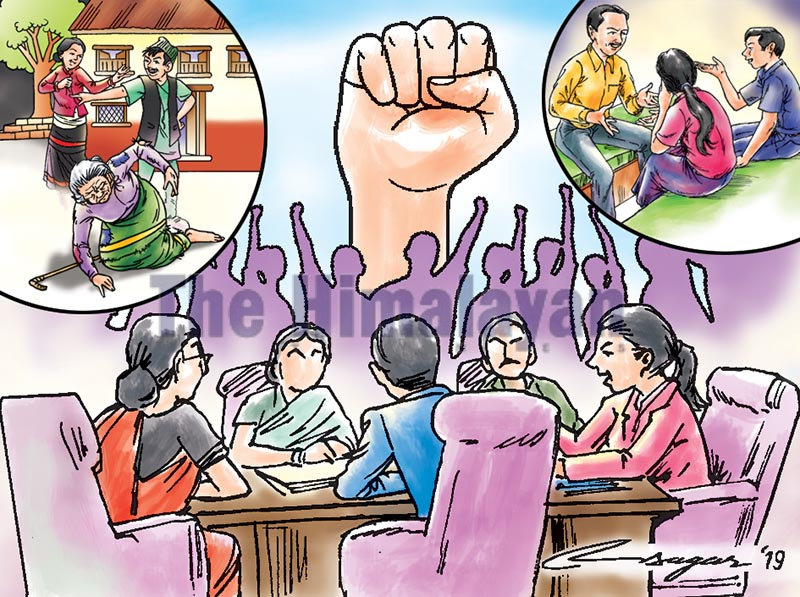Human rights education: For harmony in society
Documentary films, street dramas, art, poems, folk songs and storytelling are powerful resources to create awareness about human rights. These means should help the people understand the situation more clearly and address their concerns
Human rights are inherent in nature, without which we cannot live as human beings. They help to develop and use our qualities, intelligence, talents and conscience to make a good decision for our personal and professional life. The respect for human rights and human dignity is the foundation of freedom, justice and development of a country. Human rights are universal and applicable to all human beings without any kind of discrimination and prejudice.
Violence is the killer of human rights, and it destroys a human rights situation anywhere. So we need to make all out efforts, including education in schools and colleges, to spread the message of human rights. Violation of human rights is a universal phenomenon in the present context though the difference is only of the degree. Research and investigation in the field of human rights show that the poor, illiterate, ignorant, exploited, vulnerable and people living in the remote areas are likely to see more human rights violations. And they tend to decrease when people are well educated and advanced. It is not without reason that poverty is blamed for the brutal denial of human rights.
Every day people are witness to violation of their rights. So let us be a responsible member of the organisation work for and also be equally responsible at home and in society to identify the major human rights issues, and start a campaign to intervene for the protection and promotion of people’s rights.
Human rights education is recognised internationally. The world conference on human rights has considered human rights education, training and public information as being essential for the achievement of stable and harmonious relations in society.
The major human rights issues in our society are child labour, poverty, unemployment, lack of education, violence against women and the like. Eradication of child labour through human rights education is a fundamental necessity for the growth of a nation. Not only this, violence against women is also as old as human civilisation, and is deeply entrenched in our society. It is a big social problem, where women continue to be victims of exploitation in different forms. Crime against women, such as sexual violence, kidnapping, dowry, gang rape and trafficking, has increased despite efforts to curb it.
In the present context, creating public awareness about the need of human rights education is the greatest necessity in our country. It helps to establish harmonious relations among communities while also helping to foster mutual understanding, tolerance and peace, which are the foundation of sustainable development. The ultimate aim of human rights education is to provide knowledge and skills to develop a human rights culture in society. For that, it is essential to provide human rights education to students, teachers and parents to create a new generation that is highly aware of human rights.
Human rights education should be made a compulsory subject in schools and colleges. There should be effective mechanisms in place to monitor the implementation of such an education and its effectiveness on a regular basis, without which we can’t expect to achieve overall development.
This is the most suitable time for the government to implement human rights education at the local level because it has taken the initiative for framing a curriculum based on the local needs of the people. For this, there should be adequate allocation of budget, which should be increased every year.
The developed countries invest a huge portion of their budget on education, which is an investment for the future of the country. Merely making laws is not sufficient to bring about the desired changes in the society. We need to invest in our children, and this means putting money in good education. In the social development process, we also need to recognise the attitude of our society as well. It needs to change the attitude of the parents, teachers, the judiciary, policy-makers and other related stakeholders through effective campaigning. All political parties, irrespective of their ideological differences, also need to show similar concern for the education of the people. Unfortunately, no government has taken up this issue seriously, and only lip service has been paid to it.
Providing human rights education at the foundation level will help to establish a human rights culture in society over time. Similarly, setting up a human rights cell in the schools and colleges in every local level and in all other educational institutions will be necessary in the coming days.
The government should adopt policies to mobilise human rights-related non-governmental organisations to work in the remote areas with specific objectives to create awareness about human rights while also monitoring its effectiveness on a regular basis. Documentary films, street dramas, art, poems, folk songs and storytelling are highly powerful resources and effective means of communication to create awareness among the illiterate people about human rights. These means should help them to understand the situation more clearly and address some of their concerns.
Therefore, we need to focus on human rights education, both formally and informally, without any delay for a culture of human rights to take root in our society so that we all can enjoy a life of dignity.






